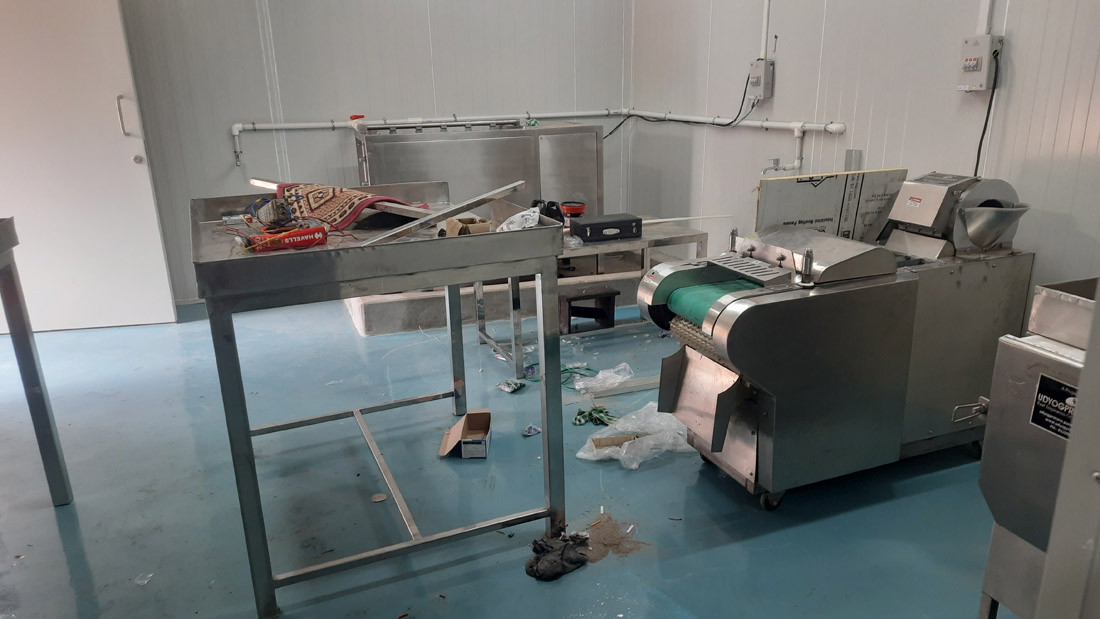MONDAY, MAY 12, 2025
- Home
- Fruit and vegetable cluster processing unit in Nagaland’s Pfutsero district on verge of completion
Fruit and vegetable cluster processing unit in Nagaland’s Pfutsero district on verge of completion
Published on Jul 12, 2023
Share

KOHIMA— In what will help farmers boost their income as well as avoid market glut, a fruit and vegetable cluster processing unit will soon be functional in Pfutsero, Phek.
The project will be implemented by the Chakhesang Women Welfare Society (CWWS) through Corporate Social Responsibility (CSR) fund.
Director of CWWS, Nezelu Nyekha, who is supervising the project, told Eastern Mirror that the processing unit is funded by North Eastern Development Finance Corporation Ltd. (NEDFi) and SBI General Insurance Mumbai as part of its corporate social responsibility and it is expected to be launched on July 17.
Speaking further about the project, Nyekha informed that once launched, the project will have the capacity to process 500 kilos per hour and commercial production will begin by August 15.
The processing unit also a 10 MT cold storage and a 5 MT solar cold storage, she added.
Products from Phek district are ‘organic’ by default though testing is not done; the society is encouraging the people to opt for organic farming and a resolution has been passed in this regard, she said, adding that the district is known for agro-food and horti products.
[bsa_pro_ad_space id=1]However, finding the market is difficult while trying to commercialise the produce, so the cluster processing unit will focus on managing the products post-harvest, and value-add the already available indigenous products and fruits. In this way, it can help the farmers, businesses and even the youth by way of generating employment opportunities and income, she said.
It will also focus on processing fruits and vegetables, including wild apple, gooseberry, Naga king chilly, tree tomato, cabbage, persimmon, kiwi and edible leafy vegetable. The processed products will be available in the form of dehydrated spices, candies, and juice, and the main target market is business-to-business (B2B) sales.
‘Germany has a high demand for ginger from Nagaland while kiwi is in demand across the country. But there is no grading and sorting of products which is why we are at a loss,’ Nyekha said, adding that grading system will now be done.
For sourcing the products, she said the society is closely working with SHGs and youth to collect fruits and vegetables from villages. ‘100 youths and women will be involved indirectly. This will enhance to about 300 covering all the villages. The committee has also been set up via SHGs in villages. For this, there is a purchase manager who will go to villages and collect on a payment basis,’ she added.
As many as 20 full-time staff will be employed once the project is functional. A total of INR 1.30 crore has been utilised towards the project over the past six months since its commencement in January this year.
The biggest challenge (in setting up the project) is irregular electricity and lack of skilled personnel, she pointed out, adding that all machineries and labourers were brought from outside the state.
Many food processing units have been set up at several places but this is one of the few in the region that will work in compliance with the Food Safety and Standards Authority of India (FSSAI) rules, she said.

